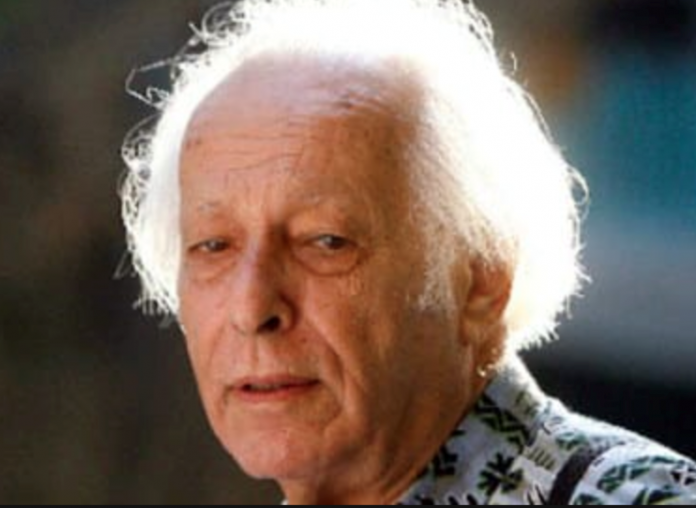The Egyptian-French economist and writer Samir Amin died in August 2018. Although he wrote many useful books, his view of socialism and class struggle has more in common with nationalism than the traditional Marxist views that we support.
There are two basic ways of looking at the world. Nationalism sees the important division as being the approximately 200 countries. For Karl Marx the division of the world into classes was far more important. As he wrote in the Communist Manifesto (1848) “The history of all hitherto existing society is the history of class struggles.” But he also said (German Ideology, 1845): “The ideas of the ruling class are in every epoch the ruling ideas.”
Nationalism is the idea of the capitalists and capitalism. Before the nineteenth century countries, as we know them today, barely existed. Germany and Italy were a patchwork of fragmented counties and most people in France could not speak French. But today nationalism is the dominant idea. It is seen as natural that we should support our countries and in Trump’s words hope that they will be great again.
Nationalism comes in many shapes and sizes from tribalism through nationalism to Pan-Africanism. In all cases it is considered natural that we should support our compatriots against the foreigners or more widely, “the other”. This has had an effect on many Marxists, despite the rallying cry of the final words of the Communist Manifesto (Marx and Engels, 1848): “Workers have nothing to lose but their chains. They have a world to win. Workers of all countries, unite!”
With the isolation of the Russian Revolution in the 1920s, Stalin moved away from internationalism and the hope of spreading the revolution internationally to “building socialism in one country”. Similarly communists around the world were advised to unite with their “progressive bourgeoise” to implement a national democratic revolution, to build the national economy in the hope that this would lay the basis for socialism at some later date.
These ideas, supported by Samir Amin and other writers, have retained their hold and, since the demise of the Soviet Union in the late 1980s, have if anything become stronger. The original Marxist idea of socialism being the self-emancipation of the working class has been replaced by the idea that all progressive people should work together to develop the economies of their different countries. The idea that under capitalism the bourgeoisie exploit the workers (of whatever country) for many people has been replaced with the idea that it is the industrialised countries that are exploiting the countries of the Global South, Africa, Asia and South America. For Samir Amin, class struggle on a world scale is that between the countries of the centre and those of the periphery.
Samir developed the idea that the world is divided into two great regions, the triad of the United States, Europe and Japan, on one hand, and the periphery, including Africa, on the other. He argued that whilst in the triad the ideas that Marx developed in his great work, Capital, explains the workings of society; across what he called the periphery unequal exchange and imperialist rent is far more important in explaining the economic condition of society.
When he was being at his most careful and specific he argued that it is the bourgeoisie of the centre that are exploiting the popular class of the periphery. But for many of his supporters and much wider groups of people the ideas of Samir Amin give credence to the idea that it is the former colonial powers that are holding back development across the Global South and especially in Africa.
Samir Amin was important as he popularised Marxism along with Walter Rodney (author of How Europe Underdeveloped Africa) and Paul Baran & Sweezy (associated with the Monthly Review journal). But their Marxism is a version of what the great American socialist, Hal Draper, called socialism from above.
From the rise to power of Stalin in the late 1920s, the major school of Marxism for most of the 20th Century was the official ideology of the Soviet Union. Samir Amin describes how this was foisted on to the world Communist Parties. This idea, for example, developed the stages view of revolution, first we have the national democratic revolution and, at a later date, after industrialisation and economic growth, it may be possible to have a socialist revolution. Samir talked about this as being the long road to socialism.
So for example in South Africa, with the overthrow of apartheid in 1994, we have had the ‘national democratic revolution’ with the associated rise of neoliberalism, privatisation and levels of inequality that are now greater than they were under Apartheid.
In Hal Draper’s terms, we have socialism from above of the ANC, and we have socialism from below in terms of the industrial struggles and fights against the privatisation of water and electricity. Marx himself would have associated more with this struggle of the working and popular classes, from below, and the idea of socialism as being the self emancipation of the working-class rather than the version of Marxism that Samir Amin so successfully wrote about.
Samir also failed to break completely and clearly enough with nationalism. In Africa now there are few progressive aspects of nationalism – witness the xenophobia in South Africa and community conflicts in many other countries. For this reason we counterpoise the traditional Marxist idea of class struggle. We argue that class struggle, an integral part of capitalism, can lead on to general strikes and eventually insurrections. Then the popular masses, led by the working class achieve socialism as their own self-emancipation. This may occur first in a single country, but as the Arab Spring showed, revolt soon spreads from one country to another.
by Drew POVEY









